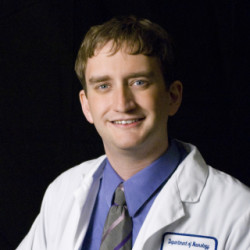At SLEEP 2023, the annual joint meeting of the American Academy of Sleep Medicine (AASM) and the Sleep Research Society (SRS), industry leader ResMed shared their latest research to advance the field of sleep apnea management. A major manufacturer of positive airway pressure (PAP) therapy equipment, ResMed, supported 10 abstract presentations. Among these were several on the global prevalence of mild sleep apnea in women as well as reduced health care utilization among patients with heart failure who had better compliance to PAP therapy.
Fatima Sert, PhD, who serves as ResMed’s Director of Medical Affairs and Clinical Research, sat with me to discuss these presentations. With an extensive background in cardiovascular disease research, she was excited to share the results of her posters and a related publication in the Journal of the American Heart Association (JAHA).
Dr. Sert started by outlining a deeper retrospective dive into global prevalence data that was first assessed four years ago. In looking at women specifically, it has been determined that worldwide 13.4% of women (an astounding 202 million women!) are estimated to be affected by mild obstructive sleep apnea. In upper-middle-income countries, up to 15.3% of women are affected. Prior studies suggest sleep apnea may affect over 54 million Americans and 936 million people worldwide.
Women tend to have milder disease, with a lower AHI, less frequent and severe oxygen desaturations, and different presenting symptoms, such as insomnia and fatigue. Unfortunately, many women may be underdiagnosed and steered away from treatment, including PAP therapy. If a more severe condition is missed, this may have important long-term health consequences, including the risks of cardiovascular and cerebrovascular disease.
Dr. Sert is passionate about supporting ResMed’s efforts to “help patients get access to the therapy that they need, the right therapy for the right patient at the right time.” To this end, she assessed the role of PAP therapy to reduce long-term health care utilization, including the costs associated with ED visits and subsequent hospitalization. These efforts were aided by Kate Cole, an advanced specialist in health care economics.
Concerned about patients with comorbidities, including serious cardiovascular disease and both associated systolic and diastolic heart failure, the team assessed how adherence to PAP therapy may affect the rates of acute care. Patients were defined to meet a minimum level of PAP compliance by the standard criteria of >4 hours of use per night 21 out of 30 days in a 90-day period for four out of four consecutive quarters.
For patients who met this compliance definition, PAP reduced health care resource utilization and costs, as assessed through a linked licensed claims database. The primary outcomes of reduction in ER visits and hospitalization were statistically significant. In systolic heart failure, the costs were reduced from an average of $5,879 to $3,500 per patient. Total costs for diastolic heart failure were reduced from $15,610 to $12,732 per patient. A limit of the study was that the patients' presenting symptoms were not known.
People with sleep apnea are up to 87% adherent to PAP therapy when both remotely and self-monitored, much improved from historical levels of compliance that were closer to 50%.
Partnerships between clinical, research, and engineering teams have allowed ResMed to continue to advance the science and associated technologies to better help people with sleep-disordered breathing. It is a role that undoubtedly benefits millions of people worldwide.
Dr. Peters-Mathews has no conflicts of interest to report.
Are you interested in writing about your experience attending a medical conference this year? Respond here.
Image by Iryna Shek / Getty Images






